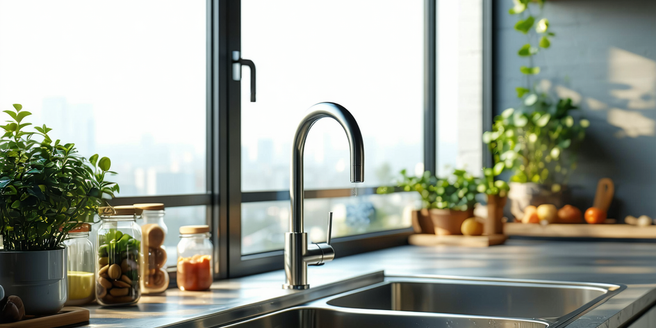
The Importance of Water Efficiency in Modern Homes
Water efficiency is crucial in modern homes as it reduces utility bills and preserves the environment. Efficient water use can significantly lower household water consumption, easing the demand on local water supplies and helping to prevent shortages. For example, installing a rainwater harvesting system can provide an additional source of water for gardening or other non-potable uses. By adopting water-efficient practices and appliances, homeowners can contribute to the global effort to conserve this vital resource. Water-efficient homes often include low-flow fixtures, efficient appliances, and smart landscaping techniques that work together to minimize unnecessary water use. These investments not only save money over time but also increase property values. Adopting water-efficient strategies can lead to a sustainable lifestyle, fostering a healthier environment for future generations.
Top Water-saving Features in Dishwashers
Modern dishwashers come equipped with numerous water-saving features designed to minimize water use while maintaining cleaning performance. Look for models with soil sensors, which adjust water use based on the dirtiness of dishes, ensuring efficient cleaning. The inclusion of energy-efficient jets and targeted spray zones also helps in reducing water consumption by directing water precisely where needed, eliminating waste. Furthermore, the integration of smart technology allows users to monitor and optimize their dishwashing habits remotely. Additionally, dishwashers certified by programs like ENERGY STAR provide assurances of meeting high water-saving standards. Innovative features such as half-load options and delayed start times empower users to run cycles more efficiently. Choosing a dishwasher with these advanced features not only helps conserve water but also significantly reduces energy costs over time.
Innovative Washing Machines with Low Water Usage
Innovative washing machines are revolutionizing water efficiency in laundry care. Many front-loading machines use a tumbling action, relying on less water than traditional agitators. High-efficiency washers not only reduce water usage but also use less energy for heating. Look for machines with smart sensors that automatically adjust water levels based on load size, ensuring no drop is wasted. Some of the latest models are even equipped with features controlled via smartphone apps. Some models incorporate steam to clean clothes effectively with minimal water. The adoption of these advanced technologies means cleaner clothes, savings on utility bills, and a reduced environmental footprint. By choosing a machine designed with conservation in mind, consumers can significantly impact overall water usage in the home while maintaining excellent washing performance.
Smart Bathroom Appliances for Reducing Water Waste
Incorporating smart bathroom appliances can make a considerable difference in water conservation. Intelligent shower systems control flow rates and track water usage, providing homeowners with insights to optimize their water habits. Automatic faucets with sensors prevent excessive water use and ensure water only flows when necessary. Smart toilets offer efficient flushing mechanisms, using minimal water without compromising performance. These innovations integrate seamlessly into modern homes, contributing to significant water savings. By adopting these technologies, homeowners can also enjoy long-term financial savings on their utility bills. Additionally, smart technology enhances convenience and user experience, allowing for the personalization of settings to maximize comfort while minimizing waste. Investing in smart bathroom solutions can lead to substantial reductions in water consumption, promoting efficient, eco-conscious living.
How to Choose the Right Water-efficient Kitchen Appliances
Selecting water-efficient kitchen appliances involves considering several factors to ensure optimal savings and performance. Start by identifying appliances with high water efficiency ratings, such as ENERGY STAR certification. These models meet strict standards for reduced water use. Consider dishwashers with smart sensors that tailor water flow according to load size and dirt levels, preventing waste. In refrigerators, features like in-door water and ice dispensers enhance convenience without excessive water use. Always assess the suitability of appliance size for your needs—larger units tend to consume more resources. Lastly, read reviews and consult professional advice to identify appliances that balance efficiency with functionality, helping your household minimize water consumption while maintaining high standards of convenience and sustainability.
